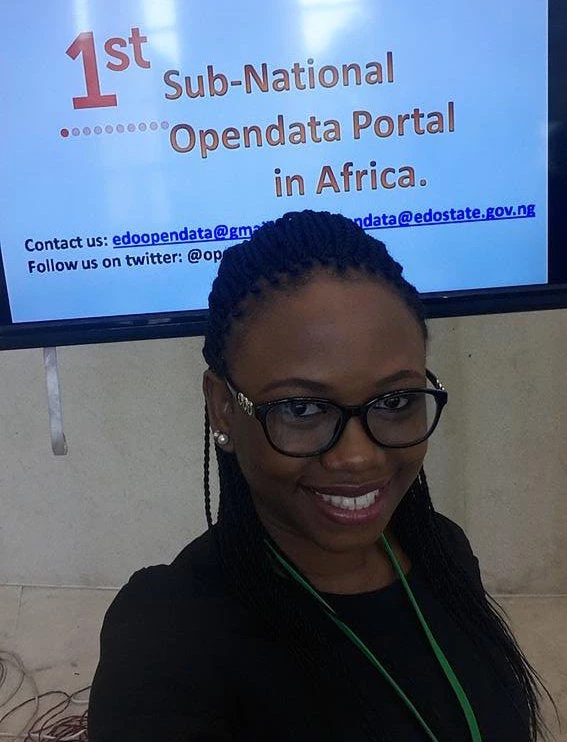Editor’s note: This is a guest blog from Jeni Tennison, CEO at the Open Data Institute. This article was first published by This is Africa on 17th January 2017.

Across Africa, innovators are using open data to gain greater insight into local issues, and create new public services. From government open data platforms to startup accelerator programmes, open data is increasingly recognised as a tool for tackling challenges across a range of sectors including health, education and agriculture.
This autumn, in six cities across South Africa the Responsive Cities Challenge encouraged designers and entrepreneurs to use open data to develop solutions that will improve local government services. Meanwhile, in Burkina Faso, the CartEau project is using open data to map safe drinking water points and latrines across the country for the first time. These examples show how open data is a powerful vehicle for addressing complex problems.
Increasing digital connectivity is important for economic growth, education and democratic participation but the equalising force of the Web is only meaningful when everyone is included in the digital sphere. According to the Web Foundation, women face disproportionate barriers to access, with poor women in urban areas in 10 developing countries they looked at 50% less likely to be connected to the Internet than men in the same age group.
Open data – data anyone can access, use or share – is transformative infrastructure for a digital economy that is consistently innovating and bringing the benefits of the Web to society. Open data often goes hand in hand with open working cultures and open business practices. While this culture lends itself to diversity, it is important that those who are involved in open data make sure it addresses everyone's needs. It is therefore encouraging to see that open data initiatives in African countries are being led by women.
Through the ODI’s Open Data Leaders Network – which brings together open data leaders from around the world, and international training programmes – the ODI has met several women leading open data change in Africa. From heading up technical teams to leading stakeholder engagement strategies, these leaders are driving open data across the continent. We speak with them about their work and their perspectives running open data programmes across the region.
Mahadia Tunga is Training Lead for the Tanzania Data Lab (dLab) project, and has spearheaded initiatives to increase data skills amongst the country’s civil servants and NGOs. dLab has also hosted a number of roundtables to explore how open data can help tackle HIV/AIDS. As a “curious citizen, researcher and lecturer”, Mahadia sees open data as “an important vehicle to transform the social [and] economic landscape of my country”, especially as a “tool to improve efficiency and enable citizens to make informed decisions”. She maintains that her experiences working within a high-performing and supportive environment have given her confidence and determination to continue building the data skills of key stakeholders across Tanzania.
Nkechi Okwuone is one of the youngest Open Data Managers in the African region, responsible for managing the Edo State Government Open Data portal and the innovative Edo AgriHub project. In Nigeria, open data is being used to help tackle corruption and opening up new business opportunities. However, Nkechi says that occasionally processes are ‘deliberately frustrated’ when opening up data means exposing corruption, and governments and the private sector must be held to account in releasing data. Nkechi recommends fellow Nigerians to consider a career in open data, as it is, as she calls it, “a growing and ever relevant area” in the country, although she highlights the need for resilience, discipline, courage and dedication to succeed in forging open data initiatives.
Yeama Thompson has been an open data champion and enthusiast in Sierra Leone since 2014, when she served as Commissioner of the Right to Access Information Commission during the Ebola crisis. During the epidemic, the Ebola Response team data gathered, analysed and shared data in real-time, which shaped government policy-making and resource mobilisation. Yeama says that although there is “no denying that Sierra Leone is a patriarchal state”, the power of open data to “speak about change and address structural governance gaps” means that “women are taking the lead on open data and good governance in government and civic spaces”. In her experience, “women are more receptive [than men] to open data in Sierra Leone”, demonstrating the wider disruptive force of open data in introducing political, economic and social change.
Linet Kwamboka is coordinator of the Kenya Open Data Initiative, managing the government’s open data portal alongside an Open Data Fellows programme, which places fellows across key government departments to increase open data available for innovation. She champions open data as an equalising force in Kenya, enabling citizens from both marginalised and well-resourced regions of the country to access customised goods and services.
Each leader stressed the importance of including everyone, whether male or female, young or old, in order to deliver digital equality. As open data is already a movement that can facilitate far-reaching social and economic change, this transformative environment provides an opportunity to ‘shine’, ‘push the limits with fierce determination’ and ‘strive to be the best’, as Linet, Mahadia and Nkechi advise. “Don’t allow the digital age to become a struggle for women and girls”, says Yeama. “Change has to start from you."
Relevant and reliable data – including data on gender – will be increasingly important for effective and sustainable development in the continent, as highlighted by initiatives like Open Data for Africa and Tech Mousso. However, there are institutional challenges to securing this future. As seen across the world, there is a need to increase data skills and computer literacy both inside and outside government, and address digital infrastructure needs such as power and connectivity to close gaps in digital access. Indeed, Nkechi and Yeama both stress the need to increase technical capacity and use of technology within government to promote the production of open data. Governments must prioritise open data by investing in skills and digital infrastructure and viewing open data as a huge, largely untapped opportunity.


Join the Conversation